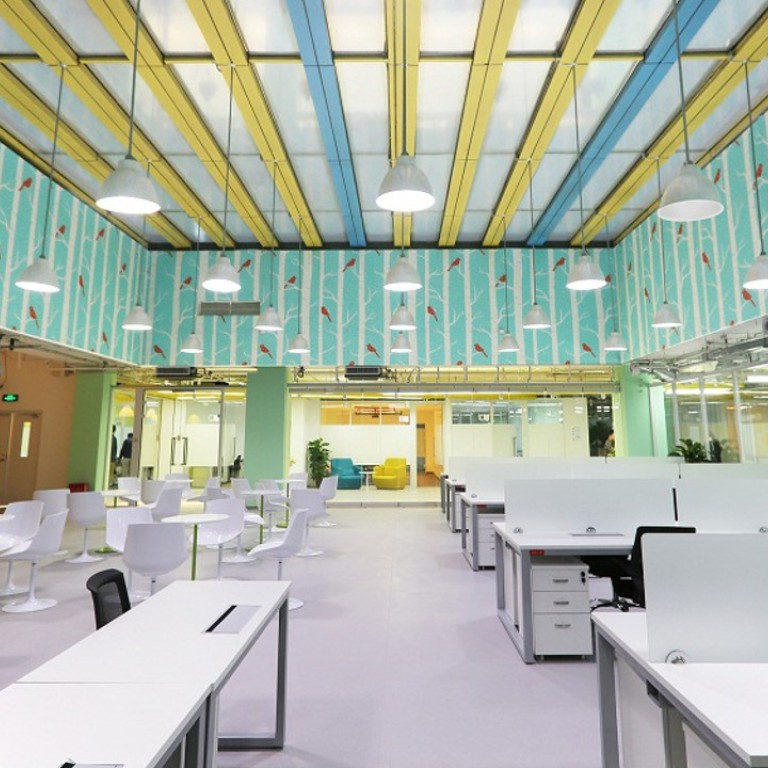
Exclusive | China’s co-working space unicorn holds firm at home amid push into to Europe
Office-space sharing start-up UrWork aims to serve overseas Chinese businesses with planned new office sites in several European cities
UrWork, China’s largest office-space sharing start-up, is still firmly focused on the home market even as it pushes into Europe in an effort to extend its battle lines with US rival WeWork.
The Beijing-based company, backed by Alibaba-affiliated Ant Financial and Sequoia Capital, is targeting 10 cities globally, with Europe’s first batch of sites to open in London, Paris and Berlin in the second half of next year, Mao Daqing, UrWork’s founder and chairman, told the South China Morning Post.
The primary goal is to serve “Chinese businesses venturing overseas” in “young and dynamic cities” worldwide, said the property veteran, who was vice-president of the country’s third-largest developer Vanke for half a decade before founding UrWork in 2015.
“We are confident of achieving a 60 per cent occupancy rate within the first three months of opening, and reaching 80 per cent within six to nine months,” he said, adding that specific locations are not yet known as deals are being finalised.
Office-space sharing, a concept that originated in North America as a result of start-up culture, provides entrepreneurs with work and meeting space room at a fraction of the cost of maintaining a traditional office.
The multibillion-dollar business has become a focal point for venture capitalists, with SoftBank and Sequoia Capital both betting big on the sector. UrWork was valued at more than 8 billion yuan (US$1.2 billion) in its latest fundraising round, making it China’s first unicorn – a start-up worth over US$1 billion – in the shared work space sector, while its US rival WeWork saw its valuation hit US$20 billion in August.
The concept of co-working has taken hold in China over the past three years, thanks to the country’s proliferation of start-ups and an increasing number of customers embracing the sharing lifestyle.
However, Mao noted that the market was still in its infancy and that it will take another five years for the concept of co-working to gain mainstream acceptance.
“We are still in the customer education phase, but China has greatest potential in the years to come,” Mao said.
With 88 co-working sites in 25 Chinese cities, UrWork is the country’s largest player in the field. Its tenants range from bike-sharing start-up Ofo and video-streaming platform Bilibili to bigger tech conglomerates like Amazon China and NetEase.
The company plans to expand globally into 32 cities with 160 sites over the next three years, which would see its total floor area under management reach 700,000 square metres.
In July WeWork launched a specialised mainland Chinese unit to expand its presence beyond the current offices in Beijing, Shanghai and Hong Kong.
Mao declined to discuss the company’s fundraising plans. In a pre-C round of fundraising in August, the company announced it received 1.2 billion yuan from investors including state-owned property developer Beijing Capital Land, Beijing Aikang and investment firm Jingrong Holdings.
Alibaba owns the South China Morning Post.

